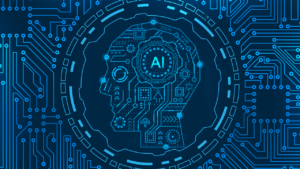In Accenture’s latest technology vision report entitled “From Digitally Disrupted to Digital Disrupter,” it states, “The ultimate goal is for any business user — from a CEO to a field worker — to be able to ask any business question and immediately get a data-driven answer from the masked data supply chain.” Accenture coined the term “data supply chain,” which it defines as an ecosystem established to enable the easy flow data throughout an organization and eventually throughout a network of partners as well. The report states:
“The data supply chain must enable data movement. And in order for data to move, it must be made visible and accessible to those who need it when they need it. As such, the first step is to create a data services platform or federated data access layer, which provides a standard method of access to an organization’s curated and trusted (albeit varied and siloed) data in a time-relevant manner. Currently, only one out of five organizations integrates data across the enterprise. But those few are realizing great benefits.”
The report concludes that the ultimate platform for the data supply chain will be a cognitive computing system. It explains:
“What if … machines could be taught to leverage data, learn from it, and, with a little guidance, figure out what to do with it? That’s the power of machine learning — which is a major building block of the ultimate long-term solution: cognitive computing. Rather than being programmed for specific tasks, machine learning systems gain knowledge from data as ‘experience’ and then generalize what they’ve learned in upcoming situations. Cognitive computing technology builds on that by incorporating components of artificial intelligence to convey insights in seamless, natural ways to help humans or machines accomplish what they could not on their own. At its most advanced, cognitive computing will be the truly intelligent data supply chain — one that masks complexity by harnessing the power of data to help business users ask and answer strategic questions in a data-driven way.”
You might have noticed that Accenture uses the terms “masked” and “masks” when it describes the interfaces that decision makers will use to obtain actionable insights from cognitive computing systems. There is no reason that decision makers need to know what is happening behind the curtain nor should they have to be computer experts to utilize the system. User friendly cognitive computing systems will allow decision makers to make queries in natural language and allow them to receive actionable insights from those queries in same way. IBM’s Watson computing system demonstrated that this kind of user friendly interface is possible when it competed on the game show Jeopardy! using only natural language inputs and outputs. In fact, Rik Kirkland (@rikthekirk), senior managing editor of McKinsey Publishing, marks Watson’s victory as a watershed moment “when computers got better than people at human tasks.” [“Artificial intelligence meets the C-suite,” McKinsey Quarterly, September 2014] He notes that later that same year (2011), “at an otherwise inconsequential machine-learning competition in Germany, contest participants were asked to design an algorithm that could recognize street signs, many of which were a bit blurry or dark. Humans correctly identified them 98.5 percent of the time. At 99.4 percent, the winning algorithm did even better.” He continues:
“It’s increasingly clear that the comparative advantage of humans over software has been steadily eroding. Machines and their learning-based algorithms have leapt forward in pattern-matching ability and in the nuances of interpreting and communicating complex information. The long-standing debate about computers as complements or substitutes for human labor has been renewed. The matter is more than academic. Many of the jobs that had once seemed the sole province of humans — including those of pathologists, petroleum geologists, and law clerks — are now being performed by computers. And so it must be asked: can software substitute for the responsibilities of senior managers in their roles at the top of today’s biggest corporations? In some activities, particularly when it comes to finding answers to problems, software already surpasses even the best managers. Knowing whether to assert your own expertise or to step out of the way is fast becoming a critical executive skill.”
Like me, Kirkland believes that the brightest future will be one in which humans and cognitive computing systems collaborate (see my article entitled “Cognitive Computing and Human/Computer Interactions“). Kirkland insists, “Senior managers are far from obsolete.” He believes, even in a world populated with ubiquitous smart computers, “Executives will have to emphasize their creative abilities, their leadership skills, and their strategic thinking.” To find out what thought leaders think about “the exponential advance of deep-learning algorithms and what it means for managerial science,” Kirkland interviewed a number of experts. Among those interviewed were two leading business academics — Erik Brynjolfsson (@erikbryn) and Andrew McAfee (@amcafee), coauthors of The Second Machine Age: Work, Progress, and Prosperity in a Time of Brilliant Technologies — and two leading entrepreneurs: Anthony Goldbloom (@antgoldbloom), the founder and CEO of Kaggle (the San Francisco start-up that’s crowdsourcing predictive-analysis contests to help companies and researchers gain insights from big data); and a data scientist, Jeremy Howard (@jeremyphoward).
Andrew McAfee told Kirkland, “I can’t think of a corner of the business world (or a discipline within it) that is immune to the astonishing technological progress we’re seeing. That clearly includes being at the top of a large global enterprise.” He continued:
“I don’t think this means that everything those leaders do right now becomes irrelevant. I’ve still never seen a piece of technology that could negotiate effectively. Or motivate and lead a team. Or figure out what’s going on in a rich social situation or what motivates people and how you get them to move in the direction you want. These are human abilities. They’re going to stick around. But if the people currently running large enterprises think there’s nothing about the technology revolution that’s going to affect them, I think they would be naïve. … It’s striking how little data you need before you would want to switch over and start being data driven instead of intuition driven.”
Jeremy Howard agrees with McAfee that companies (and the decisions made by top executives in those companies) need to be data driven. He told Kirkland:
“Top executives get where they are because they are really, really good at what they do. And these executives trust the people around them because they are also good at what they do and because of their domain expertise. Unfortunately, this now saddles executives with a real difficulty, which is how to become data driven when your entire culture is built, by definition, on domain expertise. Everybody who is a domain expert, everybody who is running an organization or serves on a senior-executive team, really believes in their capability and for good reason — it got them there. But in a sense, you are suffering from survivor bias, right? You got there because you’re successful, and you’re successful because you got there. You are going to underestimate, fundamentally, the importance of data. The only way to understand data is to look at these data-driven companies like Facebook and Netflix and Amazon and Google and say, ‘OK, you know, I can see that’s a different way of running an organization.’ It is certainly not the case that domain expertise is suddenly redundant. But data expertise is at least as important and will become exponentially more important. So this is the trick. Data will tell you what’s really going on, whereas domain expertise will always bias you toward the status quo, and that makes it very hard to keep up with these disruptions.”
Erik Brynjolfsson believes that one of the most important skills that decision makers will need in a data driven world is the ability to ask the right questions. Good answers always begin with good questions. Brynjolfsson told Kirkland, “Being able to ask the right questions … is going to be very important going forward and will require not just technical skills but also some domain knowledge of what your customers are demanding, even if they don’t know it. This combination of technical skills and domain knowledge is the sweet spot going forward.” Anthony Goldbloom adds one of the most important individuals companies will need “is somebody who knows what problem to solve and can identify the data sets that might be useful in solving it.” Clearly these experts believe that businesses must be data driven. What makes artificial intelligence so important in this data-driven environment is that there is simply too much data for humans to be able analyze and gain insights from in any reasonable timeframe. Cognitive computing systems can work around the clock. They can learn from the data they ingest. And, most importantly, cognitive computing systems can interface with decision makers in natural ways that make them collaborators rather than displacers. Goldbloom told Kirkland, “Machine learning and computers aren’t terribly good at creative thinking, so the idea that the rewards of most jobs and people will be based on their ability to think creatively is probably right.” For those occupying offices in the C-suite or a seat in the boardroom, it times to think creatively.




